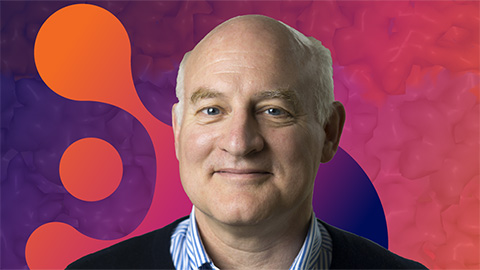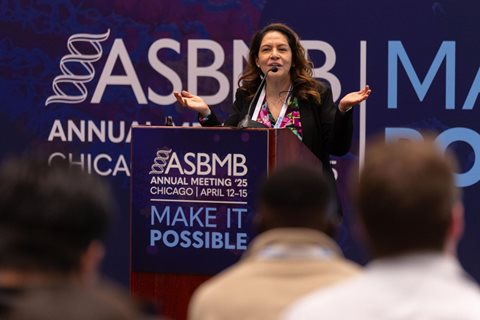How are Ph.D. students funded?
Former academic careers columnist Elizabeth Stivison wrote about how most bioscience Ph.D. programs are free, but how that is possible and how it looks in practice depends on the program. This column goes into different ways Ph.D. programs are funded and what that means for students.
Note: I want to emphasize that funding arrangements vary greatly. Ph.D. programs even within the same school can be funded differently. So this article is by no means exhaustive.
Graduate research assistantships
Typically includes: tuition, stipend, health insurance
May not include: semester registration fees, technology allowances
Although the exact title may vary, many programs fund their Ph.D. students through graduate research assistantships, or GRAs. For Ph.D. students with GRAs, their primary responsibility is to conduct research. This may involve mentoring undergraduate or other professional students, but there typically are no teaching obligations so that you can focus on your project and other program requirements, such as classes and journal clubs.
The money itself comes from your principal investigator's research grants, usually from federal science funding agencies but also sometimes from philanthropies. Some graduate programs will make sure that PIs have enough funding to cover a student for the entirety of their Ph.D. training, but it’s always good to ask about funding security during rotations or when picking a lab.
There oftentimes are costs that aren’t covered by programs or PIs, however, such as semester registration and program fees. For reference, my fees ranged from $200 to $600 while I was a graduate student, and most of the time my program or PI covered them. It could be worth asking PIs during rotations if this is something they cover or not. If not, try to save up during the semester to cover them at the beginning of each term.
Teaching assistantships
Typically includes: tuition, stipend, health insurance
May not include: semester registration fees, technology allowances
Other programs fund their students throuogh teaching assistantships, or TAs. TAs are graduate students who have instructional responsibilities for one or more courses. These courses may be graduate or undergraduate level, depending on the university, and you might lead a lab section or discussion group or provide actual classroom instruction and develop assignments, quizzes and exams. The benefit is that you get to experience teaching, which can help bolster a CV if academic instruction is something you want to do in the future.
Being a TA can be very time-consuming. If you find you are struggling to keep with your research project, program requirements and teaching responsibilities, you should have a talk with your PI about how you should be prioritizing your time or if any tasks or responsibilities can be shifted to others. Many programs don’t require TAs to work every semester, but it’s best to ask about these expectations early on.
F31 funding
Typically includes: tuition, stipend, health insurance, technology allowances, travel funds
May not include: semester registration fees
There are many grants for which graduate students can apply. One of the most common is the Ruth L. Kirschstein National Research Service Award for Individual Predoctoral Fellows (F31) from the National Institutes of Health. This award supports doctoral students after they’ve started grad school, typically in their second year and beyond. Applicants must be performing dissertation research in a health-related field. Each institute at NIH has F31 applications, and they vary. Not everyone applies for these types of grants, and even fewer people actually secure them, so talk with your PI about if you’ll be expected to apply. It can be a good exercise in grant writing even if you don’t get the award.
F31 funding typically comes with additional funds for conferences, training and even technology. It’s important to note that this award also comes with a payback agreement, which Stivison wrote about before. Make sure to familiarize yourself with the expectations and stay tuned for a future column about helpful tips for F31 applications!
Training grants
Typically includes: tuition, stipend, health insurance, technology allowances, travel funds
May not include: semester registration fees
Training grants are a little different than F31-style grant funding, but they also offer funding for students after they’ve started grad school and found a lab. There are a lot of different training grants, each typically with a specialty, such as cardiac disease or vaccine development. Most of the time, Ph.D. students are put on training grants during their second or third year, and most grants last only two years. How you get on a training grant varies. Some have intensive application processes, and some don’t have any application process at all if your PI advocates for why you should have a spot. Training grants are limited to a certain number of students, and postdocs can also sometimes be supported by this kind of funding.
There are variable requirements based on the training grant. Some may involve taking extra courses or participating in research symposia or field-specific journal clubs. Again, talk with your PI early about the requirements and how you’ll be able to manage your research on top of them. Also note that most training grants are subject to payback agreements — another good thing to ask about upfront.
Other scholarships and funding sources
There are a ton of different independent funding sources that may be used to support your tuition and salary while getting a Ph.D. When you first start, most of your funding probably comes from your graduate program, and then that financial responsibility will probably switch to your PI after you join a lab. Elizabeth wrote before about outside funding opportunities for Ph.D. students, and that article can serve as a great resource for those wanting to find funding. Securing funding through one of these resources or an F31 or training grant can also help free you of TA responsibilities if that’s part of your funding agreement.
Can I supplement my salary?
Most Ph.D. programs discourage or prohibit graduate students from seeking outside employment. That means that if you were planning to supplement your income by picking up shifts at a restaurant or retail store, it may not be allowed.
Some schools and programs may offer ways to gain professional-development experience that come with compensation. For example, summer internships (in industry or elsewhere) may provide students with extra experience and may be compensated. Likewise, some schools may offer teaching fellowships within their school or with nearby schools that are compensated as well. These options should always be discussed with your PI to ensure you are on the same page and that they won’t interfere with any graduation requirements.
While stipends cover a lot of what’s needed for graduate school, Ph.D. programs can still be hard to afford. Make sure to look at how much your stipend covers, how it’s paid for, and what restrictions may come along with it so you can be financially prepared for graduate school.
Enjoy reading ASBMB Today?
Become a member to receive the print edition four times a year and the digital edition monthly.
Learn moreFeatured jobs
from the ASBMB career center
Get the latest from ASBMB Today
Enter your email address, and we’ll send you a weekly email with recent articles, interviews and more.
Latest in Careers
Careers highlights or most popular articles

Mapping proteins, one side chain at a time
Roland Dunbrack Jr. will receive the ASBMB DeLano Award for Computational Biosciences at the ASBMB Annual Meeting, March 7–10, just outside of Washington, D.C.

Exploring the link between lipids and longevity
Meng Wang will present her work on metabolism and aging at the ASBMB Annual Meeting, March 7-10, just outside of Washington, D.C.

Upcoming opportunities
Calling all biochemistry and molecular biology educators! Share your teaching experiences and insights in ASBMB Today’s essay series. Submit your essay or pitch by Jan. 15, 2026.

Defining a ‘crucial gatekeeper’ of lipid metabolism
George Carman receives the Herbert Tabor Research Award at the ASBMB Annual Meeting, March 7–10, just outside of Washington, D.C.

Building the blueprint to block HIV
Wesley Sundquist will present his work on the HIV capsid and revolutionary drug, Lenacapavir, at the ASBMB Annual Meeting, March 7–10, in Maryland.

Upcoming opportunities
Present your research alongside other outstanding scientists. The #ASBMB26 late-breaking abstract deadline is Jan. 15.

